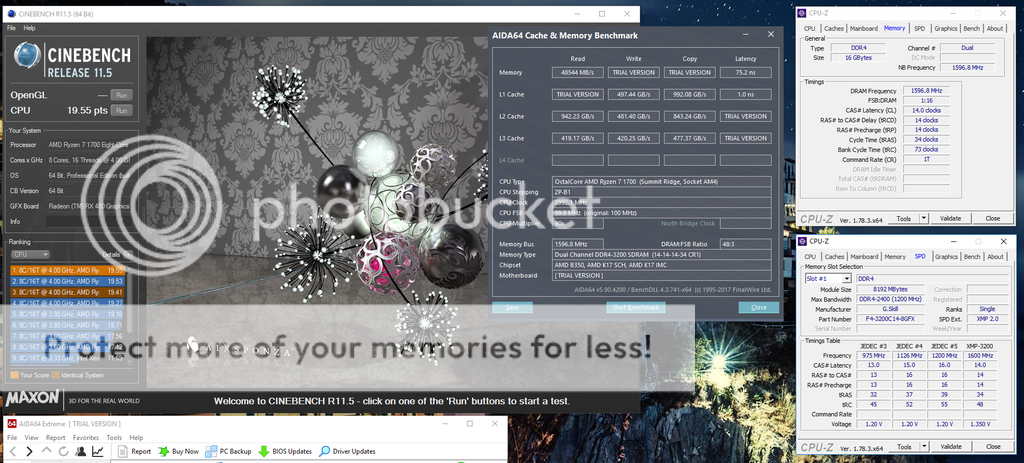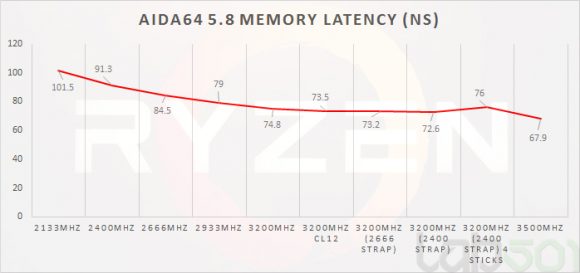https://www.aida64.com/downloads/ZjljMTEzZDU=
Release notes:

Release notes:
- AVX2 and FMA accelerated 64-bit benchmarks for AMD Ryzen Summit Ridge processors
- Microsoft Windows 10 Creators Update support
- Optimized 64-bit benchmarks for Intel Apollo Lake SoC
- Improved support for Intel Cannonlake, Coffee Lake, Denverton, Kaby Lake-X, Skylake-X CPUs
- Preliminary support for AMD Zen server processors
- Preliminary support for Intel Gemini Lake SoC and Knights Mill HPC CPU
- NZXT Kraken X52 sensor support
- Socket AM4 motherboards support
- Improved support for Intel B250, H270, Q270 and Z270 chipset based motherboards
- EastRising ER-OLEDM032 (SSD1322) OLED support
- SMBIOS 3.1.1 support
- Crucial M600, Crucial MX300, Intel Pro 5400s, SanDisk Plus, WD Blue SSD support
- Improved support for Samsung NVMe SSDs
- Advanced support for HighPoint RocketRAID 27xx RAID controllers
- GPU details for nVIDIA GeForce GTX 1080 Ti, Quadro GP100, Tesla P6













